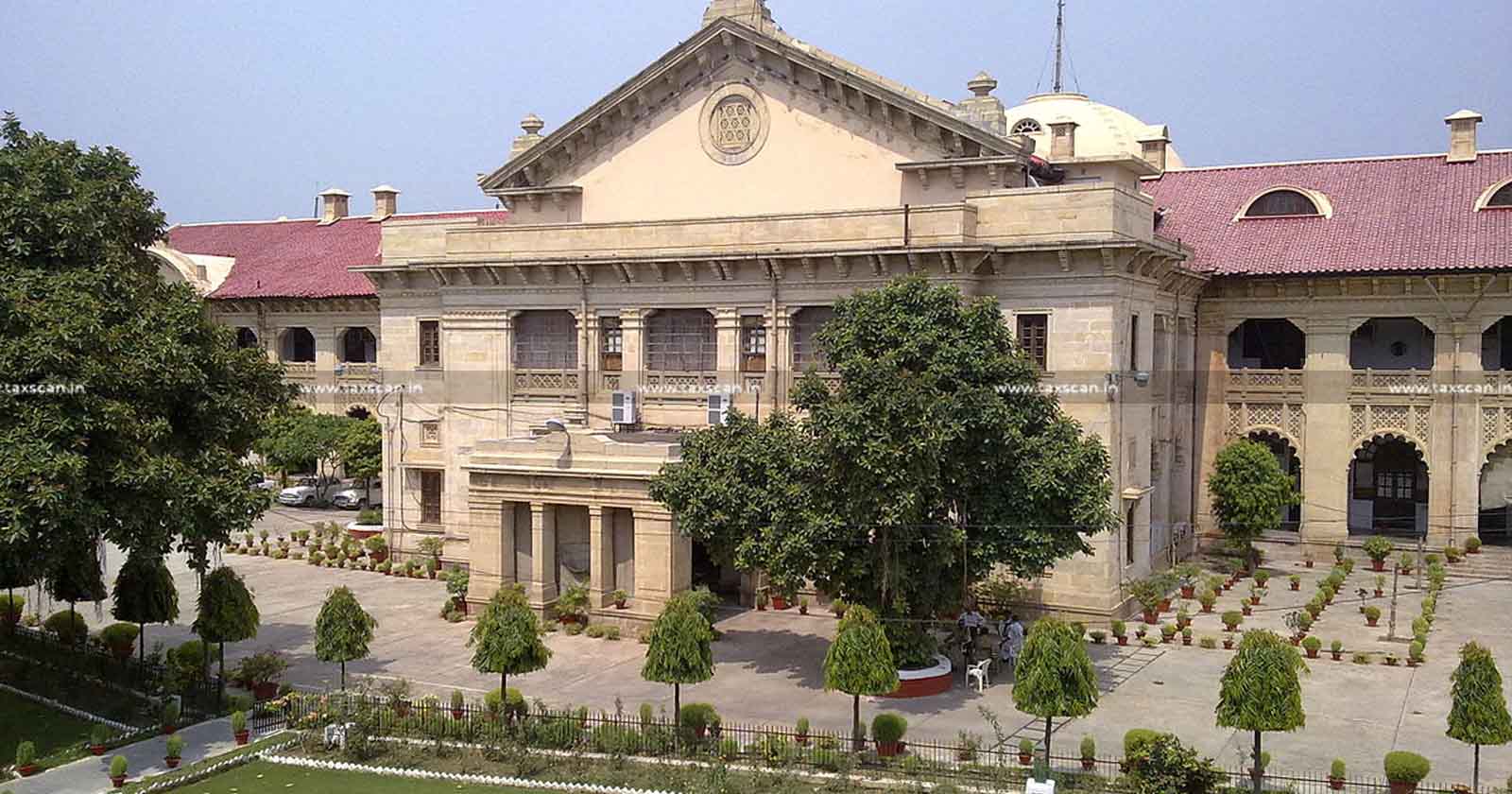A writ of Certiorari Can be Issued in Case an Interior Tribunal has Exceeded its Jurisdiction or Has not acted in accordance law: Allahabad HC [Read Order]
The HC held that a writ of certiorari can be issued in case an interior tribunal has exceeded its jurisdiction or has not acted in accordance law

Allahabad HC – Allahabad High Court – Allahabad High Court certiorari writ – Certiorari writ issuance criteria – Taxscan
Allahabad HC – Allahabad High Court – Allahabad High Court certiorari writ – Certiorari writ issuance criteria – Taxscan
The Allahabad High Court has held that a writ of certiorari can be issued in case an interior tribunal has exceeded its jurisdiction or has not acted in accordance law. The Court quashed the order.
M/s Falguni Steels, the petitioner prayed for the issuance of a writ of certiorari against the order passed by the Assistant Commissioner, Commercial Tax. The petitioner is an authorized dealer of the Steel Authority of India Ltd. ( ‘SAIL’ ). The petitioner purchased a consignment of TMT Bar under the Tax Invoice which was issued by SAIL by the provision of Section 31 of the Central Goods and Services Tax Act, 2017 ( ‘CGST Act, 2017’ ) read with Rule 46 of the Central Goods and Services Tax Rules ( CGST Rules, 2017’ ).
The petitioner obtained the service of a private road carrier for the transportation of its goods through the vehicle from SAIL Yard, Naini, Allahabad, to Falguni Steels, Lookerganj, Allahabad. The tax invoices contained the number of the said vehicle.
It was alleged that during the relevant time, the e-Way Bill portal of the Department was marred by glitches and technical shortcomings and owing to the said fact, e-Way Bills on several occasions could not be generated by the Transporters/Consignors/Consignees.
The petitioner stated that the said e-Way Bills were presented before Respondent No. 2 at the time of the interception of the goods and before the issuance of the Show Cause Notice as well as passing of the order under Section 129(3) of the Uttar Pradesh Goods and Services Tax Act, 2017 ( ‘UPGST Act, 2017’ ). However, the said e-way Bills were not taken into consideration by Respondent No. 2.
A Show Cause Notice ( FORM GST MOV - 07 ) was issued to the petitioner under Section 129(3) of the UPGST Act, 2017 on February 21, 2019, alleging that the movement of the goods was in contravention of the provisions of the UPGST Act, 2017. Respondent No. 3, through an order passed under Section 107 of the UPGST Act, 2017, upheld the order dated February 21, 2019, passed by Respondent No. 2 and confirmed the tax liability and penalty, imposed by Respondent No. 2.
At the time of inspection, e-Way Bill, which is mandatory, was not generated. This is a clear violation of Rule 138(a) of the UPGST Rules, 2017. As per Rule 138 of the UPGST Rules, 2017, eWay Bill should mandatorily be generated before starting the movement of the vehicle and ought to be furnished before the intercepting authorities in the case of interception. The reply submitted by the authorized representative of the petitioner before Respondent No. 2 was not satisfactory and hence Respondent No. 2 passed the penalty order under Section 129(3) of the UPGST Act, 2017.
Merely of no mentioning of vehicle no. in Part-B cannot be a ground for the seizure of the goods. It was evident that the goods were accompanied by the tax invoices. Furthermore, the tax invoices contained the details of the vehicle that was transporting the goods. It is further to be noted that one e-Way Bill was generated before the detention and one after the detention, but before the passing of the order under Section 129(3) of the UPGST Act, 2017/CGST Act, 2017.
Mere technical errors, without having any potential financial implications, should not be the grounds for the imposition of penalties. It was found that the authorities in the instant case transcended their jurisdiction while passing the impugned orders, issuance of the writ of certiorari is necessitated in the instant case.
Justice Shekhar B. Saraf observed that the impugned orders in the instant case are a result of Respondent No. 2 and Respondent No. 3 exceeding their jurisdiction and not proceeding by the essential requirement of the law where it was meant to be administered. Therefore, a writ of certiorari is warranted in the instant case.
The Court quashed and set aside the order.
To Read the full text of the Order CLICK HERE
Support our journalism by subscribing to Taxscan premium. Follow us on Telegram for quick updates


